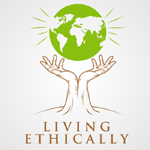Organic can be defined as natural. It is the process of allowing an organism to develop according to its own potential without undue external assistance, interferance or manipulation. In agriculture this is a delicate process, because soil improvement and rotation, irrigation, crop and animal husbandry has always been a part of farming.
The idealised aim is ‘as natural as possible,’ and Biodynamic Agriculture, a system of natural farming based upon the philosophies of Rudolph Steiner, perhaps epitomises this ethos best of all.
In addition to Organic methods, Biodynamic Agriculture aims to be the zenith in sustainability, seeking to make a farm completely self-sufficient in terms of composting, manure and animal feeds and with the least external input necessary in other areas of its business. It also pays attentions to the earth’s seasons and moon cycles when considering planting times, feeding and harvesting etc.
In terms of food and drink, Organic means growing produce and rearing animals under natural processes and in natural conditions, with minimal artificial stimuli and disruption to the environment. So chemical fertilisers, insecticides, fungicides, routine antibiotics/ medications are either disallowed completely or controllably restricted.
Likewise Organic food and drink products are manufactured to exclude artificial colourings, flavourings and unnecessary chemical processes.
The term Organic is legally defined under European Law, and food and drink production is regulated to this standard, so if food or drink is labelled Organic, you know it has been grown or produced under specific conditions. The same definitions also apply to produce and products imported into the EC.
However, the same rules do not apply to cosmetics. If you see ‘natural’ or ‘organic’ on skincare or cosmetic products this doesn’t necessarily mean what you might think. There is currently no legal definition of these terms for the cosmetics industry, so manufacturers may label skincare and cosmetics as ‘natural’, even though just 1% of the ingredients are from natural sources. They may also label a product as containing an organically produced ingredient (e.g. lavender oil), however this may be just a few drops among a cocktail of chemicals and petroleum-based ingredients.
If you consider that much of what we put onto our skin may be absorbed into our bloodstream (this is how nicotene and contraceptive patches work), it follows that we should be just as concerned about the products we put onto our bodies as we are about the food we put into them.
There are manufacturers of skincare products out there that exclude the use of chemical and petroleum ingredients, some of whom are now (voluntarily) becoming certified organic. We have included links to many of these in the bodycare & cosmetics category of our shopping directory.
For more information about the chemicals included in everyday cosmetics see our page “ingredients to avoid in cosmetics“.
UK Organic certification bodies
UK2 – ORGANIC FARMERS & GROWERS LTD
UK3 – SCOTTISH ORGANIC PRODUCERS ASSOCIATION
UK5 – SOIL ASSOCIATION CERTIFICATION LTD
